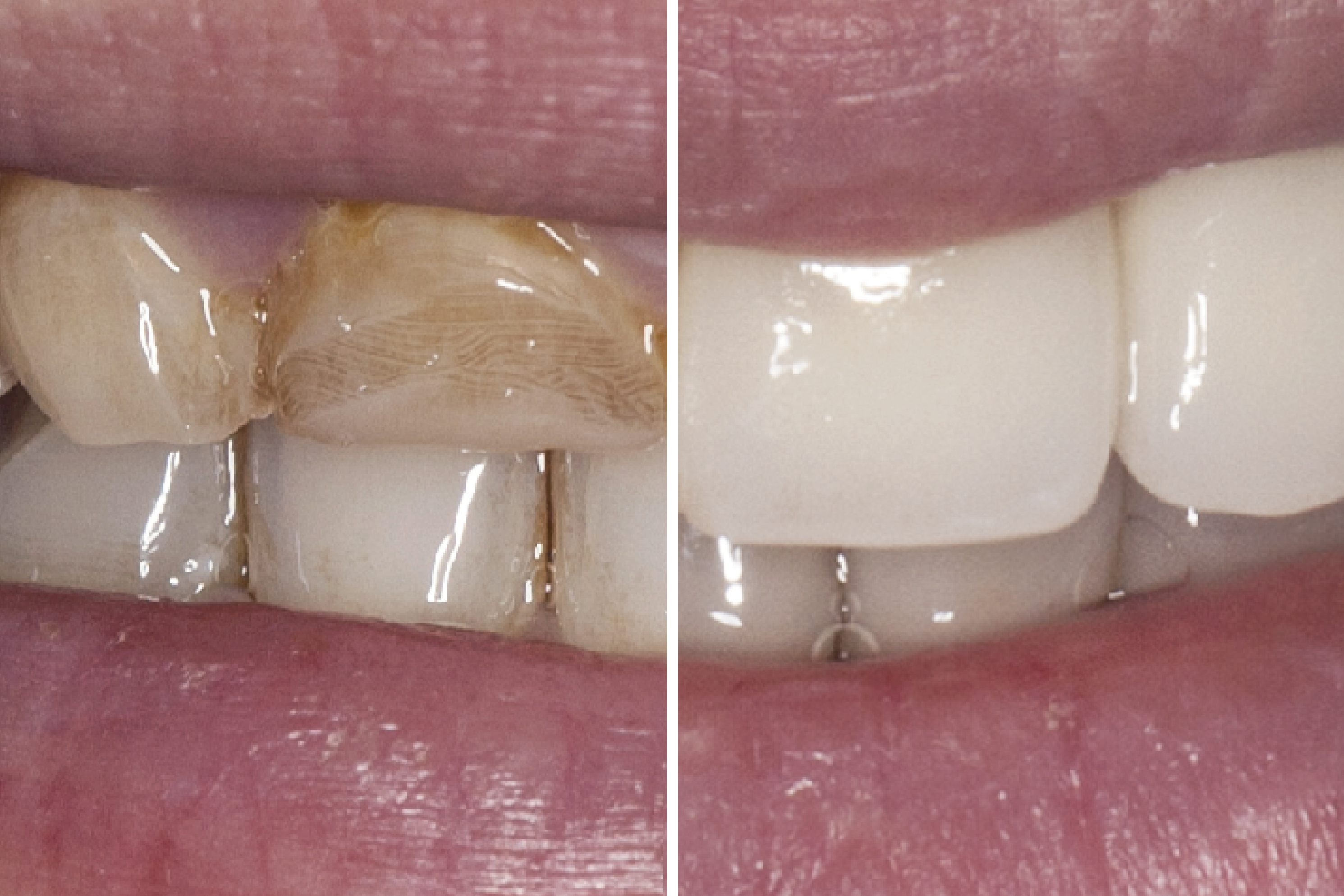Patients with a diagnosis of bulimia also need dentists who are experienced in dealing with this disorder. At the Special Clinic you can trust our expertise and our empathy.

Bulimia nervosa, an eating disorder, can cause massive damage to the teeth, the oral cavity and the throat, apart from the other psychological and somatic impairments. Characteristic of this disorder are acid-related tooth substance losses, also called erosions. According to clinical studies, tooth erosions occur in about 30% of the population. For patients with bulimia this percentage rises to up to 90%. Those affected display erosions in varying degrees and permanent subsequent damage in function and aesthetic. The Special Clinic for Bulimia provides a dental contact point, in cooperation with psychological-social institutions, to improve the overall treatment programme for people with eating disorders.

Dr. Dr. Polina Kotlarenko
Head of the Special Clinic for Bulimia
Range of Services
An early diagnosis and targeted therapy measures can contribute to prevent irreversible damage to the tooth substance and the chewing apparatus, or if it is already evident, to hamper its progress. We want to contribute to maintaining your dental health.
For most patients, damage to the hard tooth structure (enamel or dentine) can be detected. The severity of the hard tooth structure damage depends on factors such as duration of the disorder, vomiting frequency, saliva buffering capacity, salivary flow rate and a few other parameters. In addition, incorrect oral hygiene behaviour such as tooth brushing immediately after vomiting has an adverse effect.
At the Special Clinic, we care for our patients individually, taking into consideration all factors pertaining to the case and adjust our counselling accordingly.
The frequent self-induced vomiting leads to gastric acid coming into contact with the oral cavity. Especially the hard tooth structure can be irreversibly damaged by this direct contact with acid. So-called erosions occur. At first mostly painless, there is a loss of enamel and this then leads to an exposure of the underlying dentine. This can cause a heightened sensitivity of the teeth regarding changes in temperature and to pain when consuming sweet or sour food. In case of further progression, wedge-shaped defects of the tooth structure may arise, which may even lead to pulp exposure and necessitate a root canal treatment.
Dentists are often the first to identify the signs of bulimia in patients, because the characteristic pattern of tooth erosion can be seen in the chewing apparatus. Among these are:
- round tooth outlines, which have lost the sharp, occlusal relief of a healthy tooth
- instead of a cusp, there is often a wedge, an “inverted” cusp
- the incisal edges of the anterior teeth appear thinned out and transparent and can be severely shortened at a later stage.
- metallic fillings can project over the tooth level
- secondary overbite
- special sensitivity of the teeth to hot, cold, sour, sweet
- in addition, a swelling of the salivary glands, reduced salivary flow, cracked corners of the mouth and injuries of the palate and throat can also occur due to self-induced vomiting
At the Special Clinic for Bulimia we examine patients with a lot of delicacy and understanding for their illness. Depending on the state of the teeth and the oral cavity we use different diagnostic methods.
Our dentistry team provides the patient with recommendations for preventive measures. It is especially important to consider the following:
- no tooth brushing immediately after vomiting, instead it is better to rinse the mouth with a neutralising liquid, such a fluoridated solution, water or milk.
- use a toothpaste of low abrasive value
- use a “soft” or “extra-soft” toothbrush with rounded bristles
- apply low pressure to the toothbrush
- remineralisation of the teeth with calcium, phosphate and fluoride products to decrease the teeth’s heightened sensitivity
Demineralised teeth can be remineralised to a certain degree with various products such as those containing calcium, phosphate and fluoride and thus be made more resistant.
For patients with a diagnosis of bulimia, general and psychotherapeutic counselling is urgently recommended. The Special Clinic for Bulimia at the University Clinic of Dentistry Vienna cooperates closely with other fields to support those affected as well as possible.

Innovative processes can restore even very severely damaged teeth. Through an aesthetic and functional trial run, we ensure that patients accept the new restoration and experience it as pleasant and attractive.
Making an Appointment
Head: DDr. Polina Kotlarenko
Mon - Thu: 8 am - 4 pm
Mon - Fri: 8 am - 2 pm
Sat, Sun, Public Holiday: 8 am - 12 pm
